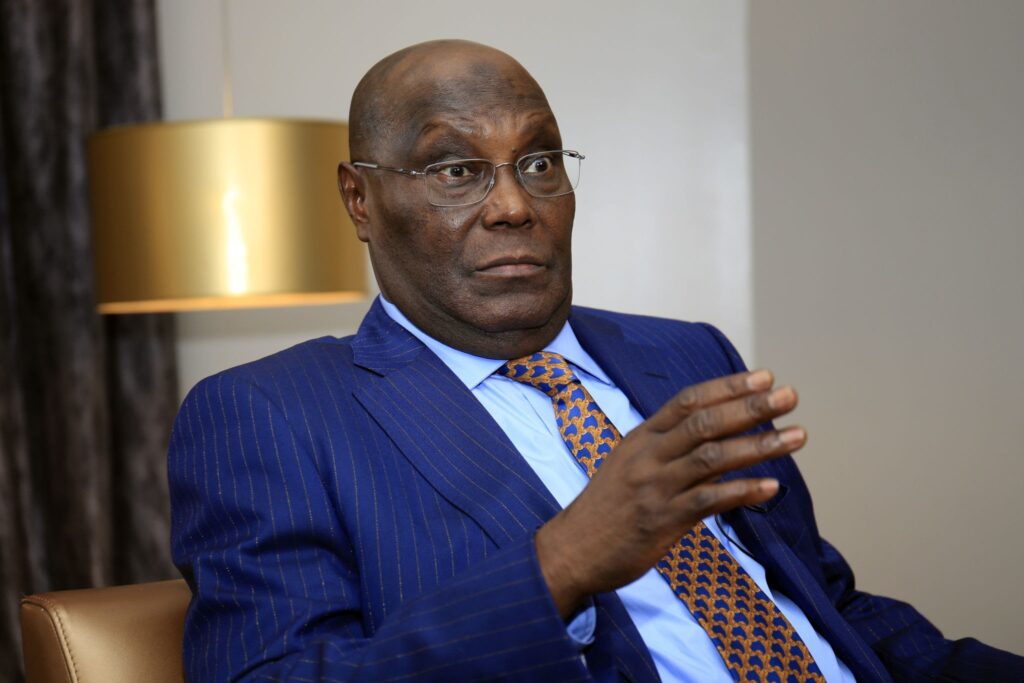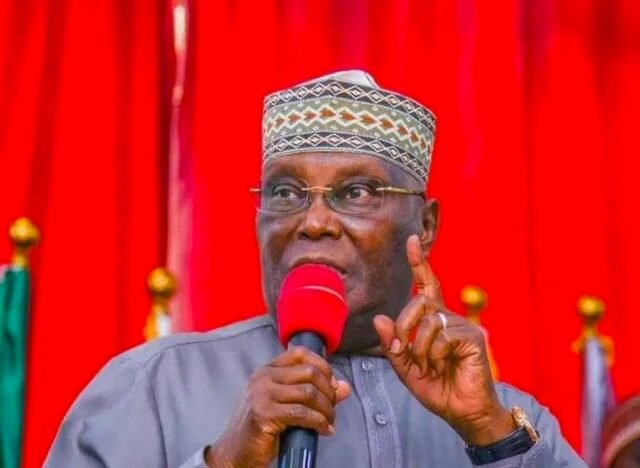In a compelling and heartfelt address at Pacesetters’ School’s Graduation & Prize‑Giving Ceremony in Abuja, former Vice President Atiku Abubakar reaffirmed his steadfast belief that education is the master key to unlocking Nigeria’s immense socio‑economic potential. With the ceremony marking a milestone for 205 young graduates, Atiku used the platform to spotlight the transformative power of education, arguing that it not only cultivates individual potential but also strengthens national unity, prosperity, and resilience.
“Education gives us the tools to build,” Atiku told the audience. “It empowers individuals—be they engineers, doctors, entrepreneurs—to carve their own paths, contribute meaningfully, and lift our nation toward collective progress.” He urged educational institutions and the government to fund schools robustly and integrate entrepreneurship into curricula, equipping students to thrive in a fast‑evolving global economy.
A Call for Funding, Curriculum Reform & Entrepreneurial Focus
As Atiku delivered his speech—joining dignitaries like Senator Augustine Akobundu and Zamfara Governor’s wife, Hajiya Huriyya Dauda Lawal—he emphasised the two pillars needed to harness education as a catalyst for growth:
- Adequate funding: “There’s no better investment than educating our people,” he affirmed, urging governments and private backers to view education as the most sustainable capital investment.
- Entrepreneurial curriculum: Atiku advocated for practical learning, not just theoretical, telling graduates they need skills to create businesses and jobs, not merely occupy them.
His words resonated with Pacesetters’ founder, Kenneth Imansuangbon, who shared his vision for scaling from nursery and primary to full‑fledged university education, nurturing graduates who are independent thinkers and change agents.
Lessons from the Past: American Peace Corps Influence
Atiku brought his message into sharp relief by recounting a formative experience from 1961: when American Peace Corps teachers replaced departing British educators at his secondary school in Northern Nigeria. He described their impact as transformational, shaping his outlook on education and inspiring him to establish his own schools with an American‑style curriculum, including the American University of Nigeria (AUN).
“That cross-cultural exposure opened my eyes,” said Atiku, underlining how diverse educational influences helped shape not only his academic foundation but his broader worldview.

Education, Unity & National Stability
Attesting to the intertwined nature of education and national cohesion, Atiku warned that citizens who lack proper education “become susceptible to manipulation by divisive forces,” threatening stability and unity. His remarks echoed a longstanding view: assured by intellectual empowerment, Nigerians are less likely to fall prey to polarisation.
He reflected: “The future of Nigeria lies not in our oil reserves, but in our people’s potential—what’s in their heads, not in the earth.”
A Retirement Plan Rooted in Lifelong Learning
Even as he signalled political retirement, Atiku promised he would return to university studies. As the founder of the American University of Nigeria, he intends to continue learning and mentoring young Nigerians. “Education has made me who I am,” Atiku shared, conveying deep personal gratitude for lifelong learning.
Shaping Tomorrow’s Leaders with Intentional Education
Chairman Kenneth Imansuangbon echoed the former Vice President’s beliefs, stressing that education should go beyond grades—fostering resilience, creativity, independence, and social impact. He praised Pacesetters’ commitment to raising thinkers who will create opportunities, not wait for them. He affirmed the school’s vision to bridge foundational education and tertiary learning, preparing students not only for jobs but for leadership and innovation.
A Distinguished Audience & Celebration
The ceremony drew a cross-section of Nigeria’s leaders and supporters of education, including:
- Senator Augustine Akobundu, representing Abia Central
- Hajiya Huriyya Dauda Lawal, Zamfara Governor’s wife
- Dan Nwanyanwu, former Labour Party National Chairman
- A special tribute to Elizabeth Imansuangbon, the chairman’s mother, highlighting her role in nurturing today’s generation.
Conclusion: A National Mandate
Atiku’s speech was more than rhetoric—it was a clarion call to transform educational funding, curriculum, and purpose. He set a moral mandate for all levels of government and private citizens to invest deeply in education, ensuring curricula teach not only subjects but skills, entrepreneurship, critical thinking, and citizenship.
As Nigeria grapples with economic and security challenges, Atiku’s core message
Atiku’s speech was more than rhetoric—it was a clarion call to transform educational funding, curriculum, and purpose. He set a moral mandate: for all levels of government and private citizens to invest deeply in education, ensuring curricula teach not only subjects but skills, entrepreneurship, critical thinking, and citizenship.
As Nigeria grapples with economic and security challenges, Atiku’s core message resonates: investing in people through education isn’t just beneficial—it’s essential.
Join Our Social Media Channels:
WhatsApp: NaijaEyes
Facebook: NaijaEyes
Twitter: NaijaEyes
Instagram: NaijaEyes
TikTok: NaijaEyes
READ THE LATEST EDUCATION NEWS












![Tragic Incident: Fans of Seyi Vibez Die in Fatal Accident After Electrifying Lagos Concert [VIDEO] Seyi Vibez](https://naijaeyesblog.com/wp-content/uploads/2025/08/Seyi-Vibez-180x135.avif)



























